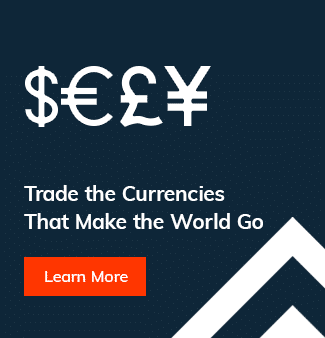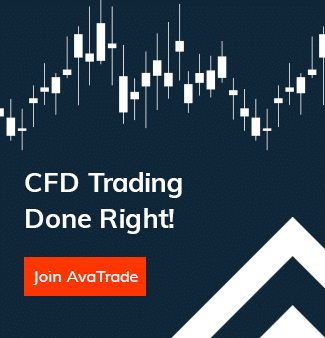
Trade Platinum with Friedberg Direct
Even though Platinum can be found in meteorites, it is considered to be one of the rarest precious metals on earth. Five million troy ounces of platinum are mined and produced annually. By comparison, the gold industry mines 85 million troy ounces a year, and silver – 547 million. Both of these metals are also considered rare.
Platinum’s metallic properties contribute to a variety of commercial and industrial industries. The attraction of the metal is in its resistance to high temperatures and its imperviousness to oxidation through air exposure. The metal is also useful as it does not react to chemicals and is an excellent conductor of heat.
Friedberg Direct offers platinum CFD trading with special benefits:
- Trade platinum and other metals with competitive spreads
- Use leverage for platinum trading
- Employ different strategies to maximise your trades
- 24/5 Technical Support
- Trade anywhere with your mobile phone, tablet or web trading
Start trading the platinum markets with Friedberg Direct and enjoy the benefits of trading with a regulated Canadian broker!
The Platinum Market
Around 50% of platinum consumption, perhaps even a little more, goes to the jewellery industry. However, due to the high concentration and constituents of platinum-containing ores, only in the last decades, have people learned how to properly melt and use platinum for jewellery.
Platinum is also used as an important and almost irreplaceable component of catalytic converters in fuel engines. Other industries, such as medicine, use platinum, but to a much lesser extent. Most of the platinum mined nowadays, a little over 80%, comes from Africa. The majority of the rest is divided between Russia and North America.
The trading of platinum is global, as it is traded on the New York Mercantile Exchange (NYMEX), the Chicago Board of Trade (eCBOT) and all the way to Asia on the Tokyo Commodity Exchange (TOCOM). The platinum market is open for trading from 22:00 to 20:59 GMT.
Advantages of Trading Platinum
- Platinum is an essential component in catalytic converters, with a major reliance on oil and environmentally safe energy consumption.
- High demand for platinum usage in jewellery. Due to the metal’s durability and non-reaction when exposed to chemicals, it does not tarnish over time.
- The endless uses for platinum in the use of archival photography, thermometers, electrodes and smaller electronic devices.
- The metal has found its place in the medical arena, where some compounds found in platinum ore are used in some forms of chemotherapy.
What Affects Platinum Prices
The special properties of platinum launch this metal with high demand into diverse industries. With that, these various industries can also have a reduction in demand for this metal, leaving it exposed to changes and vulnerable to drops and jumps within the market. The platinum price has seen large changes over the years, and there are a few factors that cause changes in its value:
Comparison with Gold
It is not uncommon to compare the price of platinum to the gold trading price. When the financial markets are stable platinum is estimated to be worth about twice the price of gold. However, when the price of gold goes up, the price of platinum usually goes down. Often the 2 assets have an inverse relationship to each other – when one goes up the other goes down.
Rarity as a Natural Resource
As mentioned before, platinum is a very rare natural resource. As is usual in commodities trading, its price is affected by supply and demand, meaning, the amount of platinum mined compared to the demand for it worldwide.
Industrial Demand
Due to its uniqueness, most platinum goes to specific industries. A change in one of them can create major shifts in the value of platinum. For instance – as mentioned before – platinum is used in engines. If, as part of the global trend of green energies, companies will reduce the use of motorized engines, the value of platinum can drop.
Platinum CFD Trading
Platinum is rarely traded as a physical commodity, but rather as a contract for difference (CFD). That means that one does not purchase or sell the asset but is able to benefit from the fluctuations in the instrument’s price. Although the trader is not trading on the actual asset, the broker provides him with real-time pricing and actions from “real life” value. Trading CFDs, as opposed to direct trading, has a few advantages:
Flexibility
Asset values can change within minutes in some cases. If a person owns platinum when its value is $1,700 and suddenly there is a shift in the market and the value drops to $1,300 he will have lost $400 of its value. This is a declining asset which other people are not interested in buying. However, if he traded its CFD, he can simply close his position at any given time, thus minimizing his loss. Alternatively, a trader who anticipates a drop in platinum prices can short the asset, i.e. open a sell position that will earn money as the underlying asset depreciates.
Leverage
Another reason is as simple as the price. Platinum is expensive, and in order to purchase one unit, the trader will have to pay a substantial sum. Trading platinum CFDs, however, the trader can employ leveraged trading and reduce the capital amount he would need.
Cost Effective
When it comes to a rare and special metal such as platinum, even if one would physically buy it he would need to transport it, maintain it, keep it safe etc. CFDs allow traders to trade on the asset without all these extra costs and hassle.
Platinum Trading With Friedberg Direct
Platinum is a unique metal to trade and not suitable for any trader. However, the benefits of trading it can attract many different traders, and it’s important to trade only with a broker who is fully regulated, with whom you know your funds are safe and from who you will receive fair and good treatment.
All these, combined with other features you should look for in a broker, like an easy to use trading platform, are crucial to be able to trade well. Friedberg Direct offers an array or instruments. Platforms including Metatrader 4, Metatrader 5, and AvaOptions, and top services, allowing you to excel in your trades. Don’t forget to check out the CFD Rollover dates to know when the current platinum contracts expire.
Start trading the platinum markets with Friedberg Direct and enjoy the benefits of trading with a regulated Canadian broker!
Platinum Trading FAQs
- Should I trade platinum?
Platinum is both rarer than gold and has more uses than gold but is often overlooked as a potential precious metal trade or investment. Rather than avoiding platinum, a trading strategy that focuses on platinum can help diversify your portfolio and give you more opportunities within the precious metals markets. Because of its heavy use within the automotive industry, platinum can be used as a trade on the strength or weakness of that industry. In fact, the trends in the automotive industry can give strong clues regarding platinum pricing, helping traders make better trade decisions.
- Is platinum the best precious metal to trade?
Platinum prices have been depressed for some time as environmental concerns have negatively impacted sales of diesel automobiles. That trend is almost sure to continue, with consumers now looking to the future for electric-powered cars. By contrast, gold and silver have been making gains as the dovish Federal Reserve weakens the U.S. dollar, and geopolitical effects send capital into safe-haven gold. And yet platinum may be a strong trade. Just a slight shift in sentiment would be enough to spark a substantial rally in beaten-down platinum and make it potentially the best trade of the year.
- What is the best platinum trading strategy?
The best platinum trading strategy is going to depend on the trader’s own tolerance for risk, their available capital, and the type of contracts being used. So, a strategy based on the spread between platinum and other precious metals might be best employed by an experienced trader with a good deal of capital using either options or futures. By contrast a new trader with limited capital is likely to benefit more from day trading CFDs, based on technical trading signals. Both are good platinum trading strategies, but they are tailored for each user’s strengths and weaknesses.
These FAQs, comments/analysis do not take into consideration your individual personal circumstances and trading objectives. Therefore, they should not be considered as a personal recommendation or investment advice. They are intended for educational purposes only. Past performance is not indicative of future results. There is no guarantee that the contents or instructions will result in profits or not result in losses.







